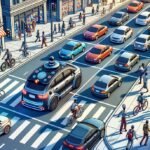AI's Role in Urban Planning
AI is reshaping urban development through generative design tools and predictive analytics. Software like Autodesk's Generative Design and Sidewalk Labs' Delve help city planners explore numerous design possibilities, considering economic, environmental, and social factors simultaneously.
Predictive analytics aids in managing urban environments by addressing issues like:
- Traffic congestion
- Water usage
- Energy consumption
For example, intelligent systems adjust traffic signals based on real-time conditions, while in Barcelona, AI manages park irrigation for improved efficiency.
Data-driven decision-making allows planners to identify zones of high demand or potential growth. AI simulates scenarios before construction begins, minimizing risks and improving community outcomes. Demographic analysis helps align resources with community needs, ensuring fair access to public amenities.
AI promotes sustainability in urban life through:
- Energy-efficient grids
- Adaptive lighting systems
- Optimized building management
In transportation, AI optimizes routes to decrease emissions and commuter frustration.
Citizen engagement is enhanced through AI-powered sentiment analysis and chatbots, creating a more participatory environment for urban development.
While AI offers numerous benefits, challenges like data privacy and security require careful consideration. Collaboration across disciplines is crucial for smooth integration of AI in urban planning.
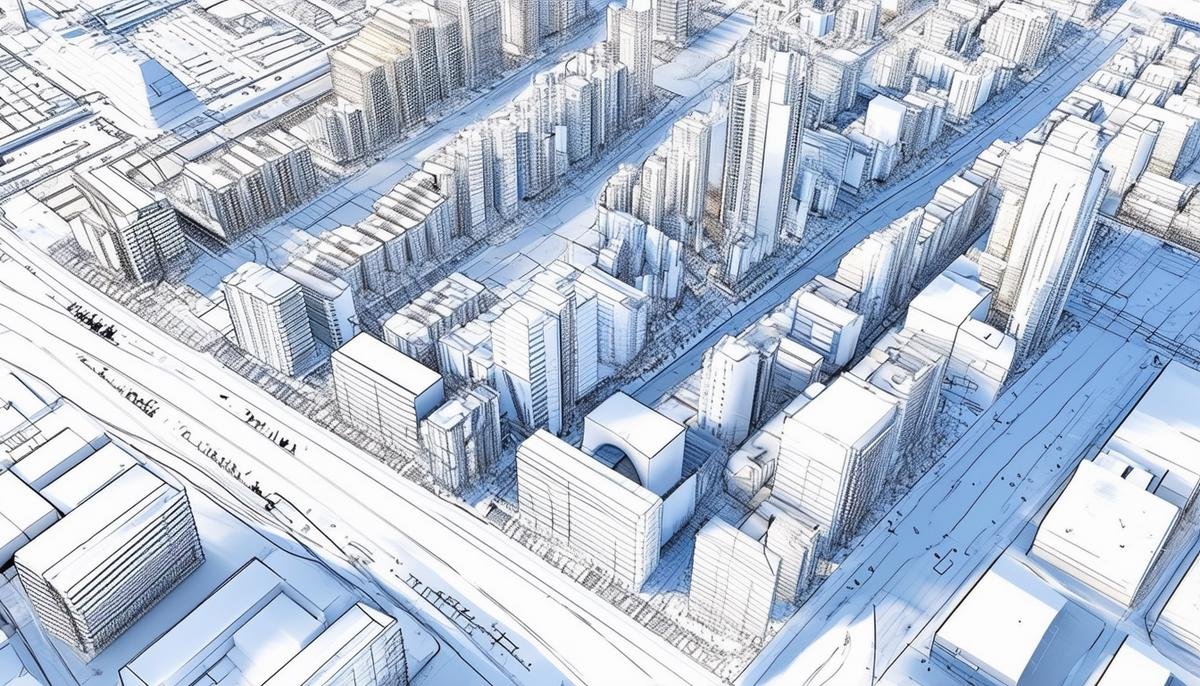
Smart City Infrastructure
Smart city infrastructure forms the foundation for AI applications in urban environments. Modernized IT systems enable data collection and analysis for informed decision-making. Interconnected edge platforms process information close to the source, ensuring real-time responsiveness for applications like adaptive traffic signals and environmental sensors.
Comprehensive communication networks facilitate the exchange of information between devices, applications, and systems. This infrastructure supports real-time analytics for:
- Smart grids
- Utility optimization
- Advanced public safety measures
The infrastructure must be resilient and scalable to accommodate future AI innovations. Cities face the challenge of upgrading existing systems while integrating new technologies, requiring a strategic approach and partnerships to create sustainable, efficient, and responsive urban environments.
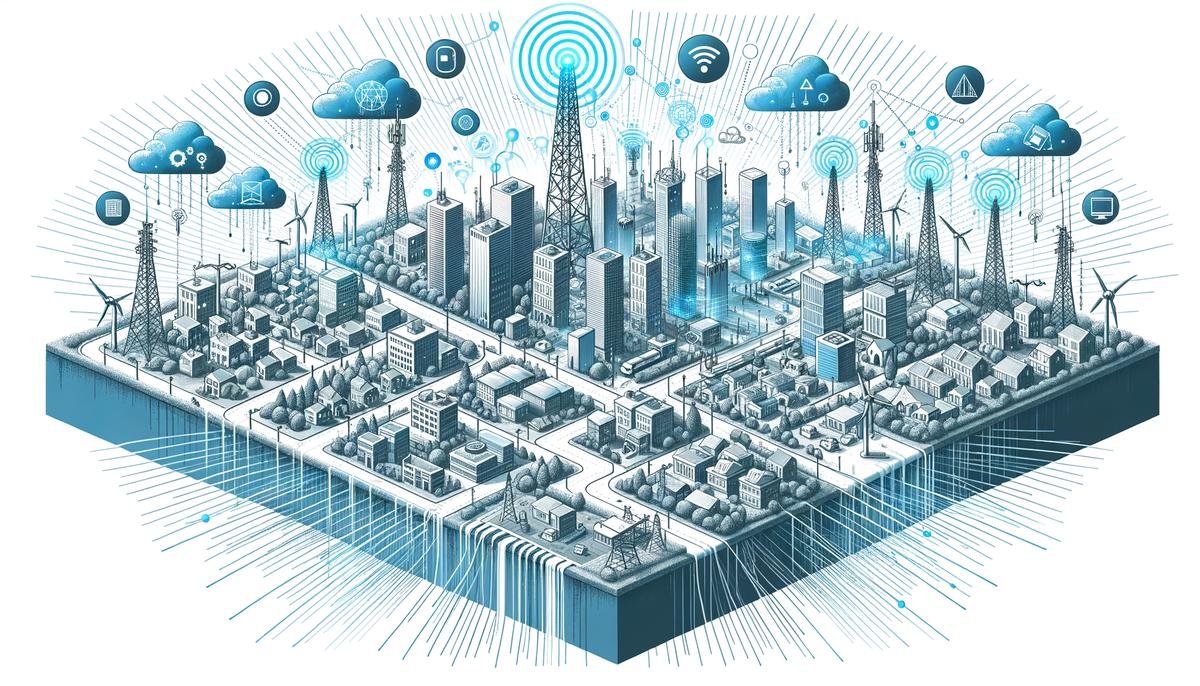
AI in Transportation and Mobility
AI is transforming urban transportation and mobility through intelligent traffic management and safety improvements. Adaptive traffic signals adjust in real-time based on live data, reducing congestion and emissions. Predictive analytics for road safety help anticipate potential hazards, allowing for preemptive measures.
Smart public transit solutions optimize routing and scheduling to match demand dynamically. Cities like Singapore use AI to adjust bus frequencies in real-time, improving commuter experience and reducing operational costs.
"Los Angeles has reportedly cut travel times by up to 12 percent using AI applications in traffic management."
Helsinki leverages AI to integrate various modes of transport, facilitating efficient multi-modal journeys across the city.
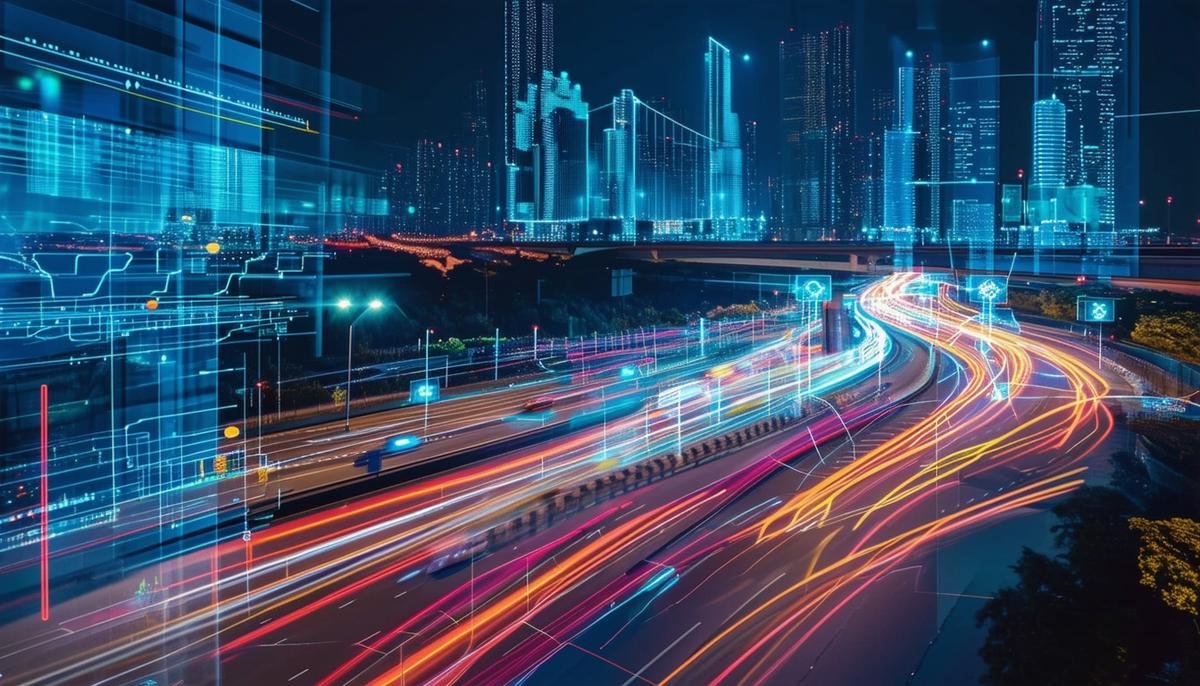
Sustainability and Livability
AI contributes to urban sustainability and livability through:
- Smart energy management
- Waste optimization
- Intelligent building systems
AI-driven smart grids ensure efficient energy flows, adapting to real-time demand fluctuations and reducing unnecessary consumption.
In waste management, AI predicts generation patterns and optimizes collection routes, reducing fuel consumption and enhancing recycling rates. Intelligent building systems monitor and control HVAC, lighting, and water usage, trimming energy use while maintaining comfort.
AI-driven systems also improve air quality through smart pollution sensors that analyze environmental data and guide mitigation strategies. These advancements promote eco-friendly urban living and enhance overall quality of life in cities.
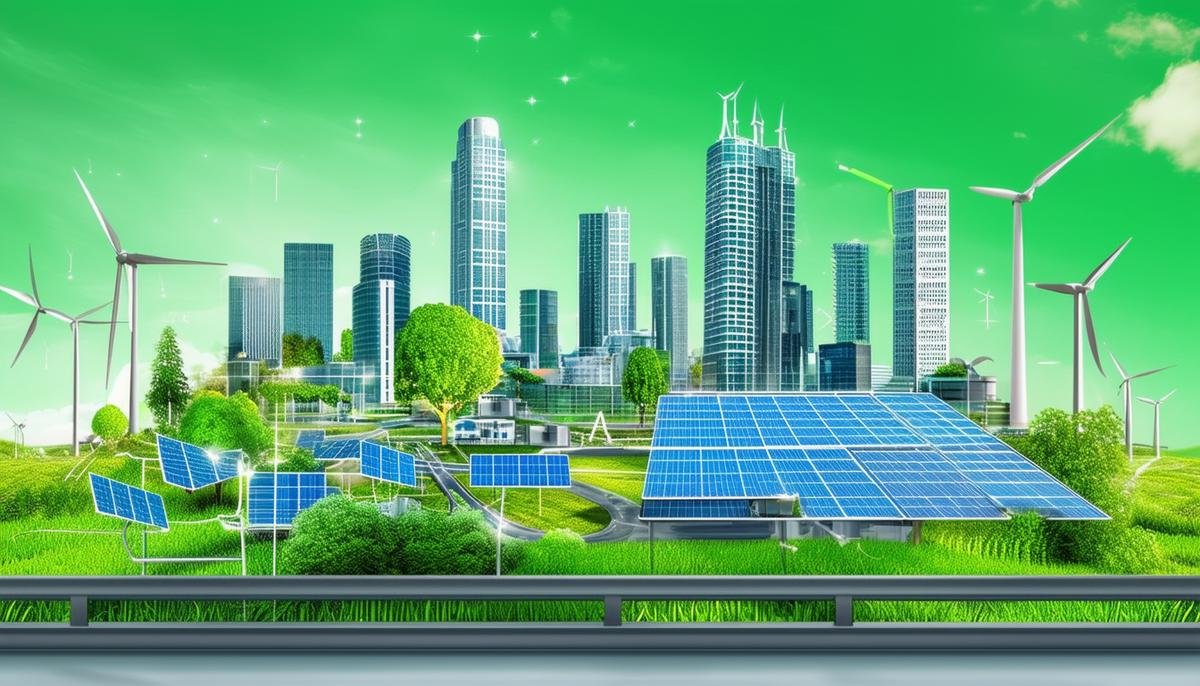
Challenges and Ethical Considerations
Implementing AI in urban development presents challenges in:
- Data privacy
- Algorithmic bias
- Digital equity
Cities must establish effective data governance frameworks with stringent privacy policies and implement data anonymization and encryption techniques.
To address algorithmic bias, urban planners should ensure transparency and fairness in AI systems, conducting regular audits and involving diverse teams in development. Digital equity requires investment in infrastructure and digital literacy programs to ensure all residents benefit from AI advancements.
Responsible AI implementation in urban development necessitates collaboration among city planners, technologists, policymakers, and community members. By addressing these challenges, cities can harness AI's transformative power while ensuring fair and ethical use.
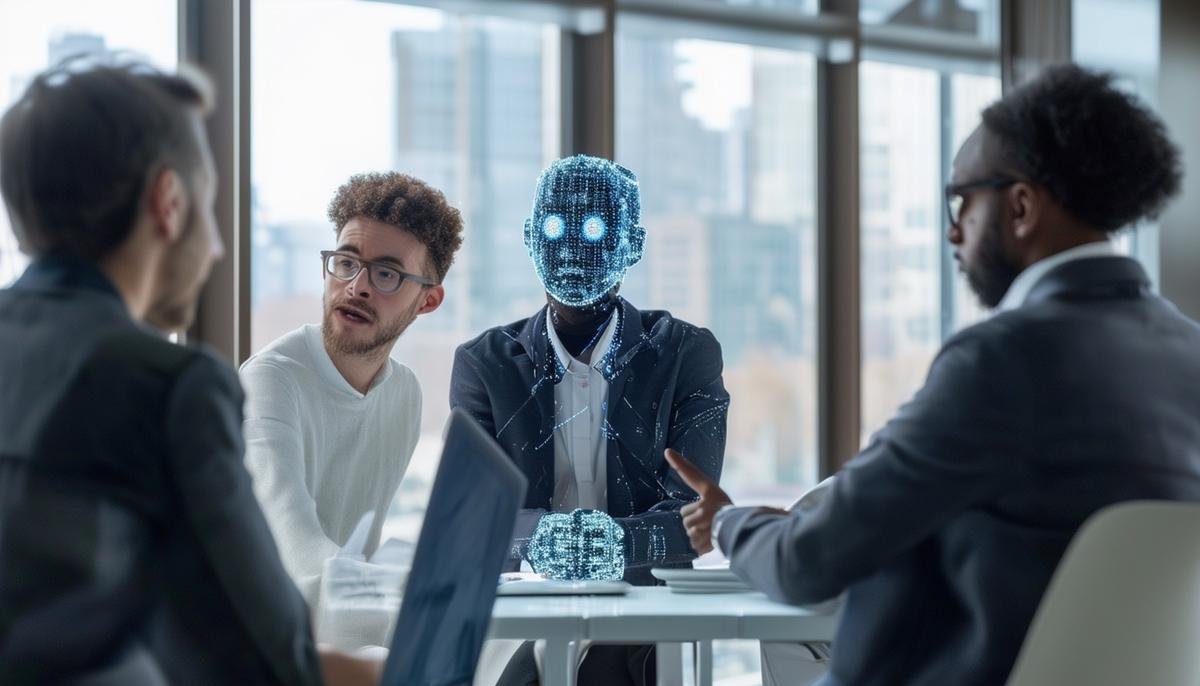
AI is reshaping urban landscapes, bringing technology and community aspirations into balance. As cities embrace these advancements, the potential for smarter, more sustainable living environments becomes increasingly achievable.
- Nature Computational Science. AI-based urban planning system outperforms human experts. 2023.
- Google Environmental Insights Explorer. Tree Canopy Lab. 2021.
- IBM Research. Measuring carbon sequestration in urban trees. 2022.
- 451 Research. Voice of the Enterprise: Internet of Things, the OT Perspective, Use Cases and Outcomes. 2023.




